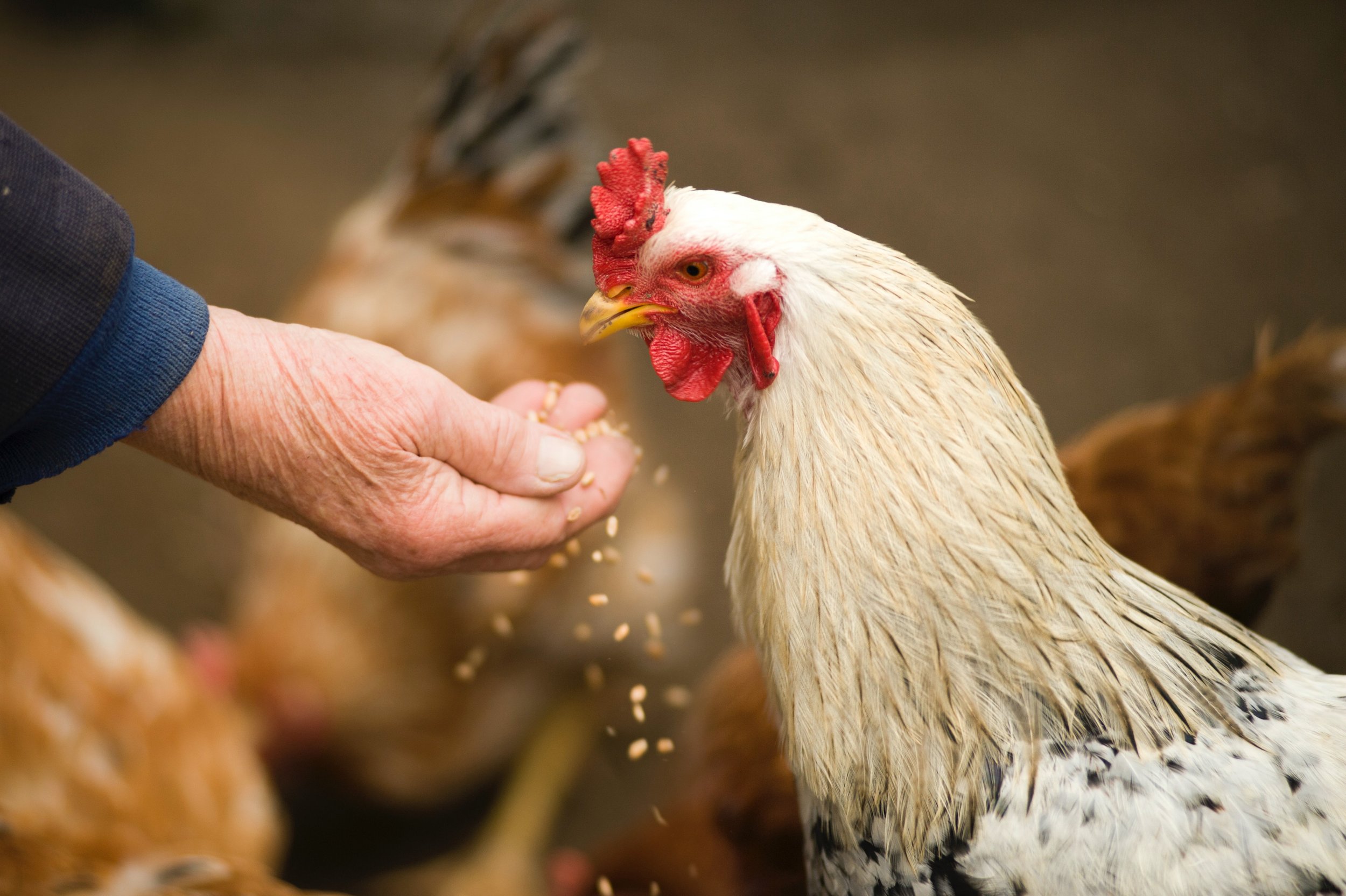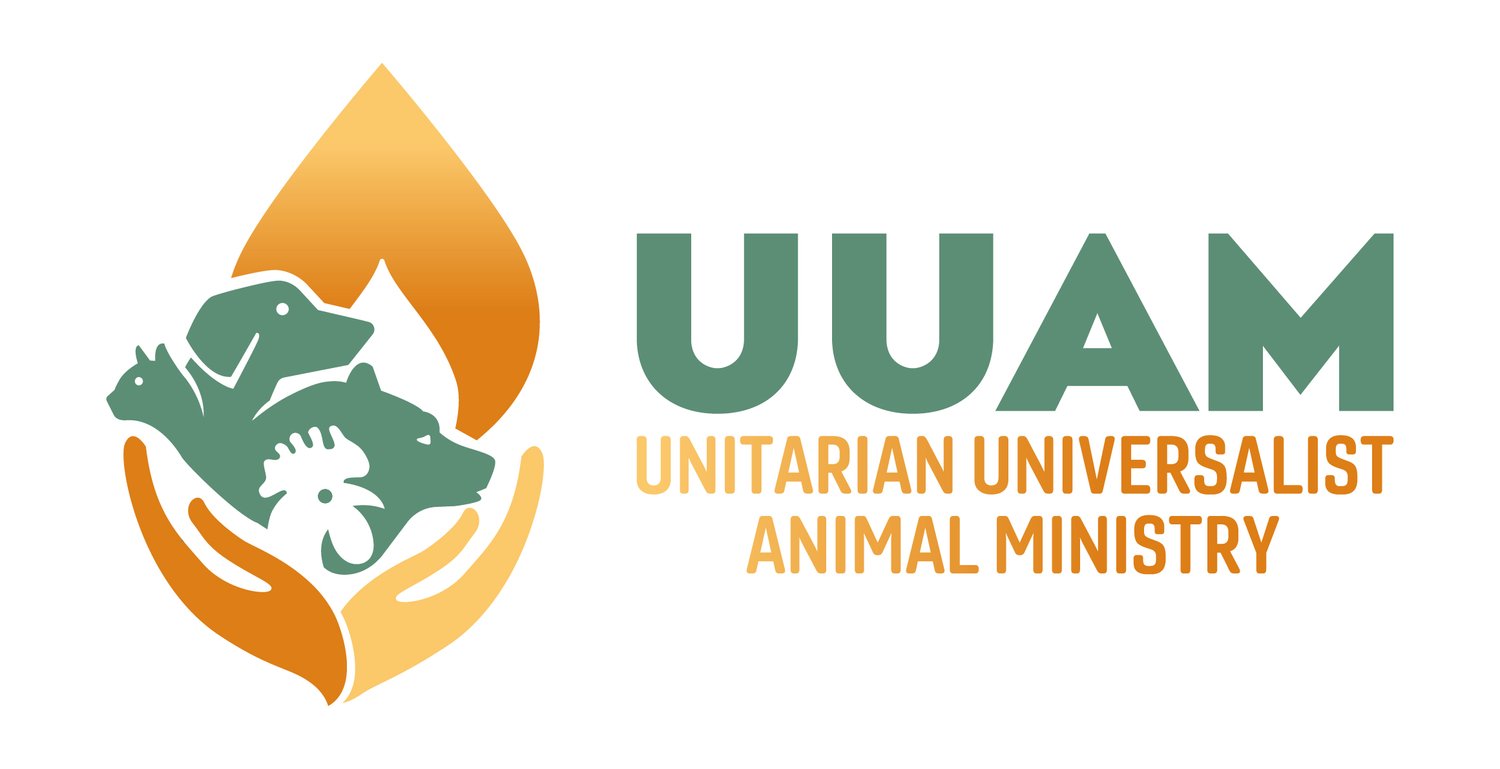
“Unitarian Universalists were among the intellectual pioneers who first pondered our ethical obligations toward other living beings.”
History of Animal Advocacy in the UU Tradition
The phrase “animal rights” didn’t enter public discourse until the 1973, when philosopher Peter Singer introduced the term in an article in The New York Review of Books. But the concept that other species are worthy of moral consideration is much older, and Unitarian Universalists were among the intellectual pioneers who first pondered our ethical obligations toward other living beings.
Jeremy Bentham (1748-1832), the founder of Utilitarianism, held that right and wrong could be determined through a calculation of the greatest good for the greatest number. He believed that the well-being of animals, as well as people, must be weighed in any balancing equation. In a letter dated 1789, he compared the status of animals to the unjust bondage of African slaves: “the blackness of the skin is no reason a human being should be abandoned without redress to the caprice of a tormentor,” he observed, and “the possession of four legs or other superficial characteristics should not deprive other creatures of legal protection, either.” The question is not, Can they reason? nor, Can they talk? but, Can they suffer?”
Another English Unitarian, Mary Wollstonecraft, made the connection between women’s rights and animal rights. When her Vindication of the Rights of Woman was published in 1792, it drew a satirical response from the classicist Thomas Taylor, who countered with a pamphlet titled Vindication of the Rights of Brutes, ridiculing women’s liberation as comparable to advocating a meatless diet. But Wollstonecraft found nothing absurd in the comparing women’s condition to that of beasts. “Humanity to animals should be particularly inculcated as a part of national education,” particularly among boys, she urged. “The transition, as they grow up, from barbarity to brutes to domestic tyranny over wives, children, and servants is very easy. Justice, or even benevolence, will not be a powerful spring of action unless it extend[s] to the whole creation …”
In the nineteenth century, many people associated with our movement advocated complete or partial vegetarianism, including Henry Thoreau, Clara Barton, Bronson Alcott, and publisher Horace Greeley, who joined suffragist Susan B. Anthony at a banquet in 1853 to toast “Vegetarianism and Women’s Rights.” Universalist social reformer Frances Dana Gage was at that same Vegetarian Festival held in Manhattan’s Metropolitan Hall, along with Lucy Stone, another Unitarian women’s rights crusader.
In 1866, Henry Bergh, a member of what is now the All Souls Unitarian Church in New York, founded the American Society for the Prevention of Cruelty to Animals, campaigning against dog and cock fights, inhumane slaughterhouse practices, the use of live birds in “pigeon shoots” and other forms of neglect and abuse. By the time of Bergh’s death twenty-two years later, nearly every state in the union had enacted anti-cruelty statutes.
During these same years, another Unitarian, Charles Darwin, revolutionized our understanding of nature, arguing in books like The Origin of the Emotions in Man and Animals that “the difference in mind between man and the higher animals, great as it is, certain is one of degree and not of kind.” Such insights led Darwin to question the ethics of vivisection and forced the scientifically-minded to a new estimation of our obligations to creatures who are our biological and psychological kin.
In the twentieth century, humanitarians like Albert Schweitzer and theologians like Charles Hartshorne continued to urge people of faith to widen that circle of kinship. “Compassion, in which all ethics must take root, can only attain its full breadth and depth if it embraces all living creatures” taught Dr. Schweitzer. As a proponent of process philosophy, which views the universe as a living network rather than a collection of inert forces or senseless objects, Hartshorne raised the pertinent question: “Is it likely that God takes no delight whatever in the more than a million other living forms on this planet, yet does delight in, derive value from contemplating, the one human species lately emergent on the planet? If such an idea is not sheer anthropomorphic bias, what would be such bias?”
Overcoming specieism (SIC), the assumption that only one animal is of interest to God, possesses inherent worth, or matters in the moral scheme of things, is the ongoing work of UUAM, the Unitarian Universalist Animal Ministry. This work is no recent innovation, but shares a long history with the struggles for abolition, the emancipation of women, and other liberation movements in our Unitarian Universalist past.
~Reverend Gary Kowalski


